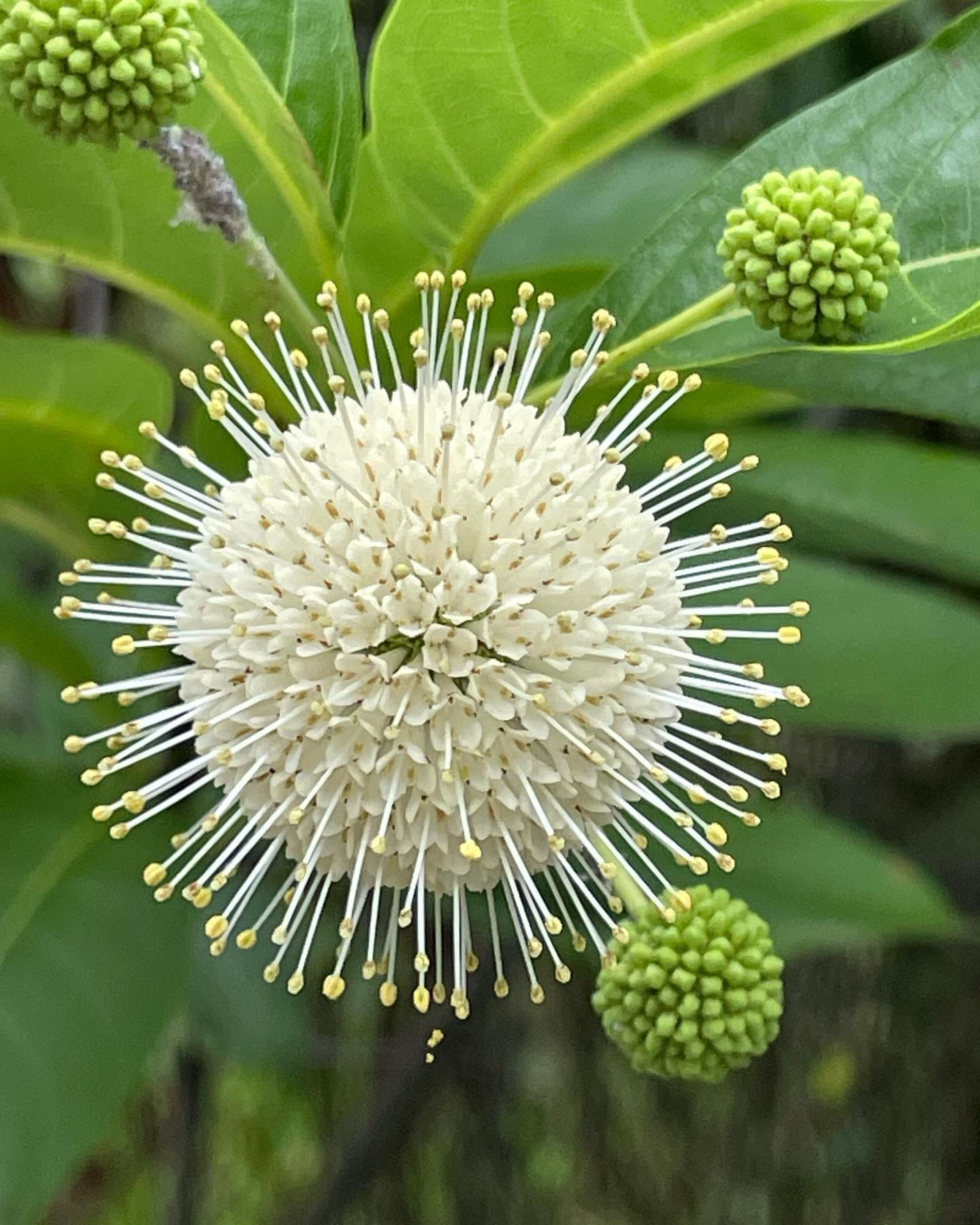Fingersmith by Sara Waters

Repetition is soothing. Looking at an image with a fractal pattern like this photo of a buttonbush in flower is soothing for many people. Listening to music that repeats a rhythm or melody is soothing for many people.
You can also try re-reading a favorite book. Your brain recalls much of what will happen in the book, but not everything, so re-reading is a soothing blend of the familiar with sprinklings of new discoveries. Falling back into the world of a book you’ve already entered can be relaxing, and re-reading can also reveal how you’ve changed since last reading the book.
Here’s an example of that reveal function: I loved all of Jane Austen’s novels as a kid until I got to Emma. It was so horrible, I didn’t believe it was written by the same person. When I revisited it as an adult, I saw why: Emma’s character faults (bossy, know-it all, and yet unperceptive when it came to what was right in front of her) were too much like mine. Re-reading revealed that I’d grown up enough to recognize those character faults.
This week, I extended my re-reading to a new book: the twistily plotted Fingersmith by Sara Waters, which I first read in 2008 or 2009 while living in Idaho. Here’s the set up: An elaborate confidence game brings two young women from different class backgrounds together in 1800’s England, and they fall in love.
The novel’s period details are riveting enough to transport me out of my 21st century world, and on re-reading those details brought me fresh pleasure. Or horror, like this detail: for the convenience of their keepers, the hair of asylum inmates could be shaved off — or it could be braided and sewn to their heads with cotton thread.
This is literary fiction with a plot twist, and another twist, and another twist, with an immersion in England’s 19th century class obsessions and oppressions, and a consuming love story. What did the re-reading reveal to me? That 10+ years of writing prose has made me more attuned to technique than when I first read the book.
Shout out to The Handmaiden, the 2016 South Korean film adaptation of Fingersmith directed, co-written, and co-produced by Park Chan-Wook. It’s a sumptuous, erotic beauty of a film that replaces the book’s British class conflicts with the ethnic status conflicts between Korean and Japanese people in the 19th century.
Got any reading recommendations?
Check out my Substack, So many books, so little time, where this piece was originally published